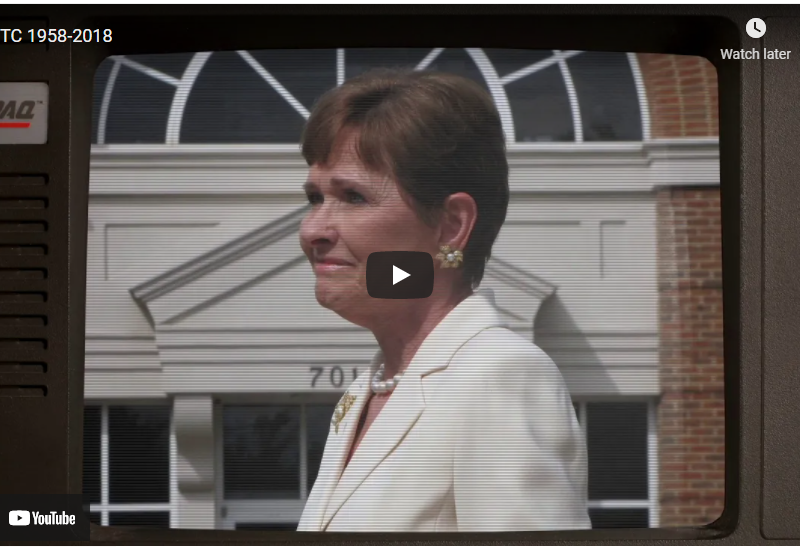
A New Economic Mobility Tool for Change
Leading on Opportunity — an FFTC initiative focused on increasing pathways to opportunity for all — recently announced the Opportunity Compass, a new tool to help measure Charlotte’s collective progress on economic mobility that was developed in partnership with community leaders.
The launch of this new visualization is a major step forward in the effort to improve the lives of local families after a 2014 national study ranked Charlotte last in economic mobility. While Charlotte’s focus on improving economic mobility has been heralded nationwide, measuring the combined impact has been elusive until now.
The launch of this new visualization is a major step forward in the effort to improve the lives of local families after a 2014 national study that ranked Charlotte last in economic mobility. While Charlotte’s focus on improving economic mobility has been heralded nationwide, measuring the combined impact has been elusive until now.
The new tool will allow organizations to track and measure research-backed interventions and will help guide strategy. By creating common metrics of economic mobility, the Compass aims to strengthen collaboration across sectors and add precision to funding and policymaking initiatives.
“Lots of nonprofits don’t have resources to have a data expert … talking about being on the same playing field! Everybody could use this,” said Amanda Schneider, development director of Right Moves for Youth, a local nonprofit specializing in youth development and student support.
Each metric in the Compass was identified by combining the findings of the Charlotte-Mecklenburg Opportunity Task Force Report with the local community priorities collected via public surveys and feedback sessions. The Compass provides insight into four actionable areas, or determinants: College and Career Readiness, Child and Family Stability, Early Care and Education as well as the Impact of Segregation. Furthermore, each determinant includes multiple drivers. For example, Child and Family stability encompasses 12 drivers, such as homeownership, proximity to grocery stores, housing cost burden, children in poverty, etc.
The Compass utilizes the most recent publicly available data, from 2015-2019, including sources such as Kids Count or the American Community Survey. The Compass data reveals that the community is moving in the right direction in 23 of the 33 areas measured.
“The Opportunity Compass is an innovative tool. Charlotte is leading the way in using evidence-based strategies to improve local opportunity and is now creating a location-specific tool to measure the impact of their collective work,” said Sarah Oppenheimer, executive director, Opportunity Insights — an initiative based at Harvard University that uses research and data to identify barriers to economic opportunity and develop scalable solutions to help people rise out of poverty.
Ready for Launch
Local nonprofits are already eagerly awaiting the arrival of the Compass as they anticipate it guiding their work.
“What excites me about this, is it gives us a single shared measurement tool to collectively gauge our work,” Carol Hardison, CEO of Crisis Assistance Ministry added. “So, if 25 organizations are all working towards one thing, and there’s some progress, it indicates that at least some of them are on the right track and gives us an opportunity to learn.”
“Leading on Opportunity is still guided by our north star that every child in Charlotte-Mecklenburg will have a chance to achieve social and economic success,” said Leading on Opportunity Executive Director Sherri Chisholm. “Providing decision-makers with a tool like the Opportunity Compass to guide strategy and measure progress is a demonstration of our commitment to this work and our children.”
The 2014 Land of Opportunity Study, commonly referred to as the Chetty Study, galvanized leaders in the region determined to help children reach their full potential. Twenty community leaders across sectors spent close to two years creating the 2017 Opportunity Task Force Report, giving local organizations a common language, 21 research and community-informed strategies, as well as nearly 100 recommendations to advance economic mobility. While the excitement and investments have been encouraging, leaders struggled with quantifying collective efforts. The Opportunity Compass is the tool to help community organizations measure progress together.
“The Compass will help us see how we’re making a difference.” said Laura Clark, CEO of United Way. “Sherri’s breathed in new life and Leading on Opportunity is keeping economic mobility front and center.”
The Opportunity Compass will continue to keep a focus on economic mobility and is available to all on Leading on Opportunity’s website.


